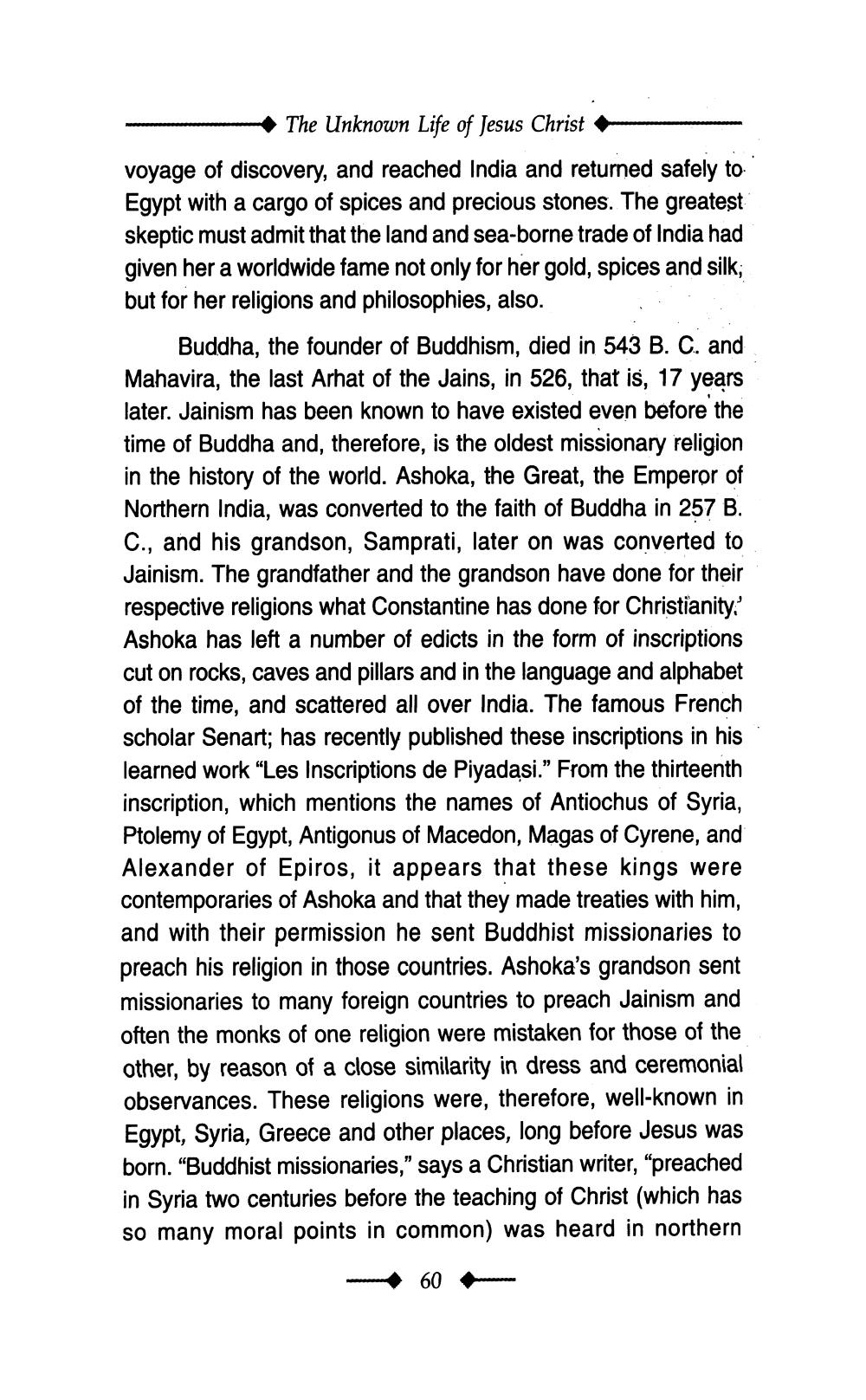________________
The Unknown Life of Jesus Christ voyage of discovery, and reached India and returned safely to Egypt with a cargo of spices and precious stones. The greatest skeptic must admit that the land and sea-borne trade of India had given her a worldwide fame not only for her gold, spices and silk; but for her religions and philosophies, also.
Buddha, the founder of Buddhism, died in 543 B. C. and Mahavira, the last Arhat of the Jains, in 526, that is, 17 years later. Jainism has been known to have existed even before the time of Buddha and, therefore, is the oldest missionary religion in the history of the world. Ashoka, the Great, the Emperor of Northern India, was converted to the faith of Buddha in 257 B. C., and his grandson, Samprati, later on was converted to Jainism. The grandfather and the grandson have done for their respective religions what Constantine has done for Christianity;' Ashoka has left a number of edicts in the form of inscriptions cut on rocks, caves and pillars and in the language and alphabet of the time, and scattered all over India. The famous French scholar Senart; has recently published these inscriptions in his learned work “Les Inscriptions de Piyadasi.” From the thirteenth inscription, which mentions the names of Antiochus of Syria, Ptolemy of Egypt, Antigonus of Macedon, Magas of Cyrene, and Alexander of Epiros, it appears that these kings were contemporaries of Ashoka and that they made treaties with him, and with their permission he sent Buddhist missionaries to preach his religion in those countries. Ashoka's grandson sent missionaries to many foreign countries to preach Jainism and often the monks of one religion were mistaken for those of the other, by reason of a close similarity in dress and ceremonial observances. These religions were, therefore, well-known in Egypt, Syria, Greece and other places, long before Jesus was born. “Buddhist missionaries," says a Christian writer, “preached in Syria two centuries before the teaching of Christ (which has so many moral points in common) was heard in northern




